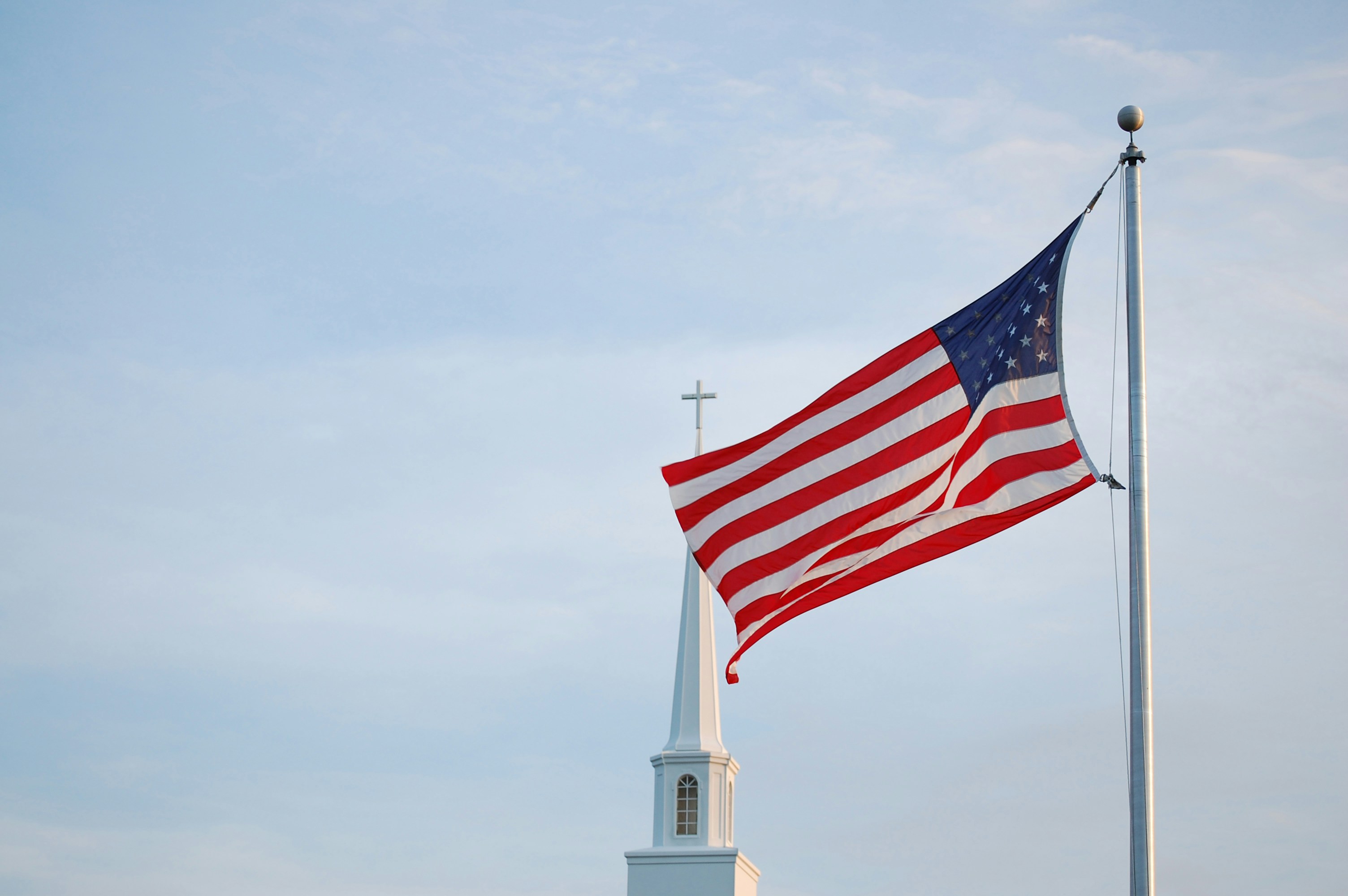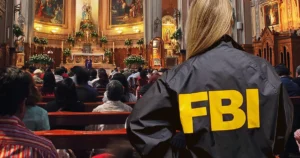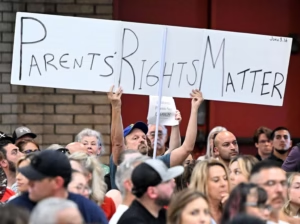Over 11,000 Sign Christian Petition Warning Trump Move ‘Corrupts’ Their Faith
Introduction to the Petition
In a notable development within the Christian community, over 11,000 individuals have signed a petition articulating their concerns regarding former President Donald Trump’s political actions and their impact on their faith. This petition signifies a growing apprehension among many believers that the intertwining of politics and faith, particularly as exemplified by Trump’s actions, poses a threat to the integrity of their religious beliefs. Such a large number of signatories underscores the seriousness of these concerns and the collective voice of this segment of the Christian population.
The petition has emerged against a backdrop of increasing polarization within political and religious spheres. Many Christians who signed the document feel that Trump’s policies, rhetoric, and conduct have not only diverged from traditional Christian values but have also contributed to a moral decay that contradicts their understanding of faith integrity. This sentiment is rooted in the belief that faith should remain a guiding principle, rather than being used as a political tool.
As the petition circulates, it raises vital questions about the influence of political figures on religious communities. The implications of such a movement are profound, signaling a potential shift in how Christianity may engage with politics moving forward. By taking a stand against perceived corruption of their faith, these individuals are advocating for a clearer separation between the roles of religion and politics. This act of collective dissent serves not only to draw attention to their concerns but also to inspire a broader conversation about the future of Christian engagement in political discourse.
Background on the Christian Community’s Political Involvement
The interplay between faith and politics has deep roots in American society, particularly among the Christian community. Historically, evangelical Christians have played a pivotal role in the political sphere, often mobilizing to advocate for policies reflecting their moral and ethical beliefs. The rise of the Religious Right in the 1980s marked a significant moment, as conservative Christian groups began to exert considerable influence over the Republican Party, addressing issues like abortion, family values, and religious freedom.
During Donald Trump’s presidency, this trend of political involvement saw a resurgence, as many evangelicals rallied behind him. Factors contributing to this support included his staunch opposition to abortion, the appointment of conservative judges, and vocal advocacy for religious liberties. Trump’s promise to uphold these values resonated with a considerable segment of the Christian community, layering his administration’s policies with their broader aspirations and beliefs. The “Make America Great Again” slogan also found favor among those who perceived it as a call to restore a nation guided by biblical principles.
Nevertheless, this alignment was not without its complexities. Significant tensions surfaced within the community as divergent opinions about Trump’s policies and behavior emerged. Some groups began to question the moral implications of aligning with a leader whose rhetoric and actions sometimes conflicted with the core teachings of Christianity. As the political landscape evolved, various factions within the Christian community began to reassess their support, leading to the recent petition warning against the potential corruption of their faith by associating with specific political ideologies. This illustrates a critical moment of introspection and dialogue within the Christian community as it navigates its political affiliations and the essence of their beliefs.
Key Concerns Highlighted in the Petition
In light of President Trump’s recent political actions, a significant number of Christian petitioners have articulated their apprehensions through a collective document expressing their discontent. The petition has garnered over 11,000 signatures, highlighting a range of key concerns that resonate deeply within the Christian community. One of the most prominent issues raised is the fear of hypocrisy. Many signers believe that Trump’s behaviors and decisions appear inconsistent with the moral teachings of Christianity, thereby undermining the authenticity of their faith. This disconnect between professed beliefs and political actions poses a troubling dilemma for many Christians who strive to align their ethical values with their civic responsibilities.
Another critical concern pertains to the moral and ethical implications of Trump’s presidency. The petition emphasizes that decisions made during his administration may reflect a departure from Christian ideals such as compassion, justice, and humility. Petitioners argue that such an approach to governance not only compromises the integrity of their faith but also sets a concerning precedent for future leaders. This raises questions about how these moves may impact the ethical landscape of American politics overall, potentially shaping a culture that prioritizes power over principle.
Furthermore, the potential alienation of minority groups is a significant theme interwoven throughout the petition. Many signers express anxiety about how Trump’s policies and rhetoric might marginalize non-Christian communities or deviate from the inclusive teachings that are central to the Christian faith. Such alienation could fracture community ties and exclude voices that are vital for a holistic understanding of Christianity. Thus, the concerns raised in the petition reflect a deep-seated apprehension that the current political climate may corrupt not only individual faith but also the broader Christian ethos of unity and love.
Responses from Christian Leaders and Organizations
The petition warning that Donald Trump’s recent political maneuvers ‘corrupt’ the Christian faith has evoked a spectrum of responses from prominent Christian leaders and organizations. This divergence illustrates the complex relationship between faith and politics that many are currently navigating. On one hand, several leaders have publicly endorsed the petition, emphasizing the need for a discernible separation between Christian values and political agendas. They argue that aligning too closely with any particular political figure compromises the integrity of their faith and may alienate believers who hold different convictions. This perspective underscores concerns that political affiliations can overshadow the core tenets of Christianity, which traditionally promote love, compassion, and justice.
Some influential figures within mainstream denominations have voiced their support for the petition, underscoring the importance of moral and ethical leadership in politics. For instance, leaders from various theological backgrounds have highlighted the potential dangers of conflating spiritual beliefs with political power. They advocate for fostering a community that prioritizes unity and understanding over political division, which they argue reflects the teachings of Christ.
Conversely, there are notable Christian leaders and groups who have opposed the petition, asserting that it misinterprets Trump’s intentions and policies. These advocates contend that his presidency has revitalized certain religious freedoms and values that resonate with their faith. They believe that interpreting his actions as detrimental to Christian faith overlooks the successes achieved in areas such as pro-life initiatives and religious liberty. This perspective reveals a dependence on political engagement as a means to influence societal norms, leading to a spirited defense of Trump’s presidency within certain segments of the Christian community.
This ongoing debate among Christian leaders demonstrates the dynamic interplay between faith and politics, revealing the diverse opinions that exist and the complexities that arise in the current political climate.
The Role of Social Media in Publicizing the Petition
In recent years, social media has emerged as a powerful tool for mobilizing communities and disseminating information rapidly. The petition, which garnered over 11,000 signatures from Christians who believe that President Trump’s recent actions corrupt their faith, exemplifies the significant impact of digital platforms in contemporary activism. Activists have skillfully leveraged platforms such as Facebook, Twitter, and Instagram to amplify their message and engage a broader audience.
One of the primary strategies implemented by organizers involved creating shareable content that not only explained the petition’s purpose but also resonated emotionally with potential signers. Visual elements, such as infographics and video testimonials from leaders within the faith community, played a crucial role in illustrating the potential consequences of the Trump administration’s policies on their beliefs. The use of compelling hashtags also contributed to enhancing visibility and promoting discussions across various user networks.
Moreover, the interactive nature of social media platforms has fostered communities of support among like-minded individuals. Many users took to these platforms to express their opinions, share personal stories, and discuss the intersection of faith and politics. This engagement created a sense of urgency and helped to catalyze further action not only for signing the petition but also for related initiatives aimed at influencing public policy.
The real-time feedback mechanism provided by social media enabled activists to adapt their messaging based on public reaction, thereby ensuring greater relevance and resonance with their target audience. By utilizing social networks, the petition organizers succeeded in raising awareness about their cause and encouraging a collective movement that highlights the intricate relationship between faith, public discourse, and political involvement. Ultimately, the role of social media in publicizing this petition underscores its significant influence in shaping conversations around critical societal issues.
Analyzing the Impact on Trump’s Political Base
The petition signed by over 11,000 Christians warning that President Trump’s actions are ‘corrupting’ their faith could have significant ramifications on his political support base, especially among evangelical voters. This group has been a cornerstone of Trump’s political coalition, typically aligning with his values on moral issues. However, this recent outcry indicates a potential fracture in this foundational support.
Evangelical voters have often prioritized concerns surrounding conservative social values, including opposition to issues such as abortion and same-sex marriage. However, the petition highlights a growing unease regarding the ethical implications of Trump’s leadership style and policy decisions. This sentiment could signal a shift among some voters who might be re-evaluating their allegiance to a candidate perceived as compromising their spiritual principles. The divergence may incite a reevaluation of priorities within their voting behaviors, leading to increased scrutiny of Trump’s platform.
Such a backlash could force Trump to recalibrate his strategies moving forward. If evangelical voters begin to withdraw their support, it may necessitate a pivot toward issues that align more closely with their moral compass. This realignment could create internal divisions within the Republican Party, as different factions may disagree on how to address the concerns brought up by the petition. Moderate Republicans might seek to distance themselves from Trump’s more polarizing actions, while staunch supporters could double down on these policies in a misguided attempt to reinforce loyalty.
The impact of this petition reflects a deeper reflection within the evangelical community about political collaboration. As voters grapple with their beliefs in the context of their political choices, the implications for Trump’s support base could be profound and far-reaching. It remains to be seen how effectively Trump can navigate this challenge and maintain his foothold amongst evangelical constituents.
Historical Precedents of Faith and Politics in America
Throughout American history, the intertwining of Christian faith and political engagement has had significant implications for governance and public policy. One of the earliest examples can be traced back to the Puritan settlers in the 17th century. These settlers viewed their migration to North America as part of a divine mission to create a “city upon a hill,” a society governed by their interpretation of Christian values. This early union of faith and politics laid the groundwork for the expectations surrounding moral guidance in governmental structures.
Moving into the 19th century, the Second Great Awakening played a crucial role in shaping political movements, particularly regarding social reform. The fervor of evangelical Christians during this period prompted a range of political actions aimed at abolishing slavery, promoting temperance, and advocating for women’s rights. Key figures such as William Lloyd Garrison and Frederick Douglass were influenced by their Christian faith, which they articulated as a moral imperative to pursue justice and equality. The moral urgency that characterized this era demonstrates how religious beliefs can galvanize political action.
The civil rights movement of the 1950s and 1960s serves as another poignant illustration of faith influencing politics. Leaders like Martin Luther King Jr. garnered support by framing civil rights as a moral struggle deeply rooted in Christian teachings. King’s eloquent speeches drew parallels between the fight against racial injustice and key biblical themes of liberation and redemption, reinforcing that advocacy for social justice was not merely a political endeavor but a spiritual mission as well.
These historical precedents showcase the cyclical nature of faith intertwining with American politics, where religious beliefs have vigorously influenced public policy. Understanding these dynamics provides essential context for contemporary discussions, including the recent Christian petition against political figures, reinforcing how faith continues to shape the landscape of American governance.
Conclusion: A Call for Reflection Among Christians
As the discourse surrounding political figures and their influence on religious communities continues to evolve, it is imperative for Christians to engage in critical introspection. The recent petition, signed by over 11,000 individuals warning against perceived corruption of their faith due to political endorsements, serves as a potent reminder of the intricate relationship between faith and politics. This situation calls for believers to reflect on their values and the implications of their political choices.
Believers are challenged to navigate the complexities of their faith while remaining actively engaged in the political landscape. It is essential to maintain integrity and hold true to the teachings of Christianity, avoiding the pitfalls of political alignment that may compromise one’s spiritual principles. Christians are encouraged to examine the motivations behind their political support and consider how these decisions align with their beliefs. Reflecting on questions such as “Does my political stance reflect Jesus’ teachings?” or “Am I prioritizing my faith over political allegiance?” can lead to a deeper understanding of the responsibilities inherent in both roles.
Furthermore, the Christian community is tasked with fostering an environment that promotes dialogue about faith-based political involvement. By discussing the intersection of faith and political action, believers can collectively discern the best course of action that honors their commitment to Christ while engaging with societal issues. This introspection not only strengthens individual faith but also builds a more conscientious and unified community. As Christians strive for guidance on these matters, let this moment serve as a catalyst for meaningful reflection and proactive engagement in their faith journey amidst the complexities of modern politics.
Next Steps for Petition Supporters
As the petition gains attention, supporters are encouraged to take proactive steps to further their commitment to the cause. Engaging in discussions surrounding the implications of political actions on faith can be an essential first step. Organizing or joining local forums allows individuals to exchange ideas, share concerns, and brainstorm potential solutions, thereby fostering a community of like-minded individuals who are passionate about preserving religious integrity.
Those who have signed the petition may also benefit from connecting with local advocacy groups that align with their values. These organizations often provide resources and guidelines for effective activism, helping members to amplify their voices within their communities. Whether through attending meetings, volunteering for events, or participating in campaigns, joining such groups can strengthen the movement and promote a collective stance against political actions perceived as corrupting faith.
Additionally, petition supporters can leverage social media platforms to raise awareness and increase public discourse on the subject. By sharing personal stories and insights, individuals can create a ripple effect that draws more attention to the petition. Crafting informative posts and engaging with followers can broaden the reach of the campaign and encourage others to join in. It is also crucial to interact with local representatives, urging them to listen to the concerns of constituents regarding the intersection of faith and politics.
Finally, continuous education on the evolving political landscape is vital. Petition supporters should remain informed about legislative changes and community actions that affect their faith. Attending workshops, webinars, or reading relevant literature can equip individuals with the knowledge needed to advocate effectively for accountability. By staying engaged and informed, supporters can play a significant role in shaping a political environment that respects and honors their faith.










Leave a Reply
You must be logged in to post a comment.